Autism is a long-term neurological condition that alters how the brain functions. While there is no cure for autism, some supports, therapies, and interventions can help individuals’ features, talents, and experiences improve over time. Depending on the level of assistance required, people with ASD and their families may be eligible for financing and support services for the rest of their lives. Adults with ASD typically have fewer resources accessible, so early financial and program planning is critical if they require a specific degree of assistance as they grow older. A variety of organizations exist to help with the costs of raising a kid with autism.
Provincial Support for Autism
Ontario Autism Program
The Ontario Autism Program (OAP) assists families with children and teens who are autistic. The programme is open to children and youth who have been diagnosed with autism spectrum disorder (ASD) by a trained clinician. Children receive services and assistance until they reach the age of eighteen.
Ontario is creating a comprehensive, needs-based, and family-centred autism programme. We will continue to provide programmes and support to improve outcomes for children and youth on the autism spectrum, promote quality care from autistic providers, and assist as many families as possible during this transition.
Eligibility
To be eligible for the Ontario Autism Program, your child must complete the following steps:
- You must be under the age of 18 and live in Ontario.
- It would be best if you also had a written diagnosis of autism from a certified expert.
The following information must be included in your child’s documented diagnosis:
- the date of your child’s assessment, your child’s full name, and date of birth
- a statement showing that the youngster meets the autism spectrum disorder diagnostic criteria
- Name and credentials of the qualified professional
To register, you must complete and submit the Ontario Autism Program registration form and supply any required supporting paperwork.
BC’s Autism Q and A: Autism Funding
Through the Ministry of Children and Family Development in British Columbia, we have access to provincial government financing for autistic services (MCFD). After receiving a diagnosis of Autism Spectrum Disorder, people under 18 are eligible for support (ASD). Families can get up to $22,000 per year in funding to assist pay for autism services, therapies, or equipment. Except for authorized family counselling/therapy providers, you must choose service providers from the Registry of Autism Service Providers (RASP).
Families can get up to $6,000 annually to help pay for out-of-school autism services and therapies if they qualify. You have the option, but not the obligation, to choose service providers from the list (RASP). The Ministry of Education also provides additional support services.
To know more about eligibility and how to avail this funding,
Read more about Canadian Government Grants for Disabled Homeowners
Special Services at Home
Families caring for a child with a developmental or physical handicap can apply for financing through the Special Services at Home (SSAH) programme.
Primary caregiver relief and related support activities promote the child’s personal growth or development, such as camps and leisure activities like swimming and music lessons.
Through indirect help, respite improves the primary caregiver’s capacity to care for a disabled kid living at home. Indirect assistance can help relieve the primary caregiver of some of their obligations, such as cooking, housekeeping, and food shopping, allowing them to take a break from caring for their loved one.
Support for personal development and growth might assist the youngster in learning new skills. A number of factors determine the quantity of money you get.
- what kind of care your child requires and how much of it they require
- What are other resources available in your area?
- what kind of help you’ve already gotten
Family Directed Respite (FDR)
FDR financing is a reimbursement scheme designed to help families who are not currently connected to Ministry-funded respite/camp programmes create and direct their respite plans. On behalf of the Toronto Respite Network, respiteservices.com administers Family Directed Respite funding. The Ministry of Children, Community and Social Services is providing Family Directed Respite Funding to help families obtain respite services in their areas. There is no guarantee that this money will be available.
Eligibility:
The child must be diagnosed with Autism Spectrum Disorder (ASD) •Child must live with a caregiver and be a permanent resident of Toronto.
The child must be between the ages of 2 and 18 years old
Families that participate in Ministry-funded respite/camp programmes may be ineligible. If you have any queries regarding the programmes you’re presently participating in, please contact them directly to inquire about funding.
Assistive Devices Program (ADP)
If you have a long-term physical handicap in Ontario, the Assistive Devices Program (ADP) will help you pay for tailored equipment like wheelchairs and hearing aids. The ADP covers approximately 75% of the cost of qualified equipment and supplies. The supplier bills the programme directly for these items, and you pay the remaining 25% at the time of purchase. To help cover the expense of continuous supplies, you may receive a series of payments over the year rather than a single large payment.
The ADP does not cover repair costs, and you must cover those expenses. It is also your job to look after and maintain the equipment. If your condition changes or your equipment is no longer under warranty and cannot be repaired at a reasonable cost, the programme may contribute to the cost; this would be on a case-by-case basis.
Assistance for Children With Severe Disabilities
Children with special needs may suffer from various issues that affect their physical, communicative, intellectual, emotional, social, and/or behavioural development.
Multiple diseases and/or disabilities may affect the everyday activities and functioning of children with special needs. The following are examples of special needs:
- Communication problems and delays
- physical impairments
- disabilities of the nervous system
- traumatic brain injuries
- Specific diagnoses, such as Cerebral Palsy, Down Syndrome, Spina Bifida, Autism Spectrum Disorder, and Fetal Alcohol Spectrum Disorder, are chronic and/or long-term medical disorders (FASD)
Other Federal Grants
Disability Tax Credit (DTC)
The disability tax credit (DTC) is a non-refundable tax benefit that assists people with disabilities and their caregivers lower their income tax liability. Once a person is eligible for the DTC, they can claim the disability amount. This figure includes a bonus for those under the age of 18 after the year. The DTC’s goal is to increase tax equality by providing relief for disability costs, which are inevitable extra expenses that other taxpayers do not have to deal with. Federal, provincial, and territory programmes, such as the registered disability savings plan, the Canada workers benefit, and the child disability benefit may be available if you qualify for the DTC.
Only if we approve Form T2201, Disability Tax Credit Certificate, would an individual be eligible for the DTC. Using the new digital application for medical practitioners or manually filling out Form T2201, a medical practitioner must certify that the person has a severe and prolonged impairment and indicate the effects.
The impacts of the disability are used to determine eligibility for the DTC rather than the physical condition itself. To see if the person is eligible, answer a few questions.
To learn more about the requirements for receiving the DTC, go to Eligibility criteria for the disability tax credit.
Registered Disability Savings Plan (RDSP)

A registered disability savings plan (RDSP) is designed to assist parents and others in saving for a person eligible for the disability tax credit’s long-term financial security (DTC). Contributions to an RDSP are not tax-deductible and can be made until the beneficiary reaches age 59. When contributions are taken from an RDSP, they are not counted as income to the beneficiary. When paid out of the RDSP, however, the Canada disability savings grant (grant), the Canada disability savings bond (bond), investment income earned in the plan, and rollover proceeds are included in the beneficiary’s income for tax reasons.
If an individual fits all of the following criteria, you can designate them as a beneficiary:
- Is the disability tax credit (DTC) available to you? (unless transferring from an existing RDSP to a new RDSP).
- Possesses a valid social security number (SIN).
- Must be a Canadian resident at the time the plan is signed.
Is it under 60 years old? (a plan can be opened for an individual until the end of the year they turn 59).
When a beneficiary’s RDSP is opened due to a transfer from another RDSP, the age limit does not apply.
A beneficiary can only have one RDSP at a time, albeit this RDSP can have many plan holders throughout its life and can have multiple beneficiaries.
Check out more info about Canada Disability Savings Grant
Assistance for Children With Severe Disabilities Program
If you are a parent or guardian caring for a child with severe impairment, the Assistance for Children with Severe Disabilities (ACSD) program may be able to help you financially. This programme assists low- and moderate-income families with additional costs associated with caring for a child with severe impairment.
Parents and guardians who meet the criteria can receive between $25 and $500 monthly to help with disability-related expenses. We are temporarily modifying how we process disability-related expenses under the Assistance for Children with Severe Disabilities (ACSD) programme to support persons and their families when community-based activities and settings are closed due to the COVID-19 epidemic.
You may be eligible for financing from the ACSD programme if you are the parent or guardian of a child under the age of 18 (17 and under), live at home, and have a severe handicap.
A combination of variables determines your eligibility and the amount of support you receive:
- the size of your family’s household income, the severity of your child’s disability
- exceptional expenses incurred as a result of your child’s impairment
Family Support and Respite for Children and Youth With Special Needs
You can get up to $3,500 per year for respite care for each child. If you care for a kid who is medically frail and/or uses a technology device and requires care 24 hours a day, 365 days a year, your family may be eligible for this grant.
Eligibility
Your child must meet the following criteria to be considered:
- be under the age of 18 and live at home, requiring round-the-clock care and surveillance, be medically fragile and/or technologically reliant, and fit one of the following criteria:
- Mechanical ventilators, apnea monitoring, renal dialysis, urine catheters, and colostomy bags are medical and technology equipment examples.
- intravenously given medications
- tracheotomy tube care, suctioning, oxygen support, or tube feeding are all used.
- At-Home Special Services
Read more about Best Grants for Students With Disabilities in Canada
Conclusion
Autism is a complex condition with a wide variety of issues that necessitate various interventions. These grants can help alleviate some financial constraints, allowing you to provide optimal care for your autistic kid.



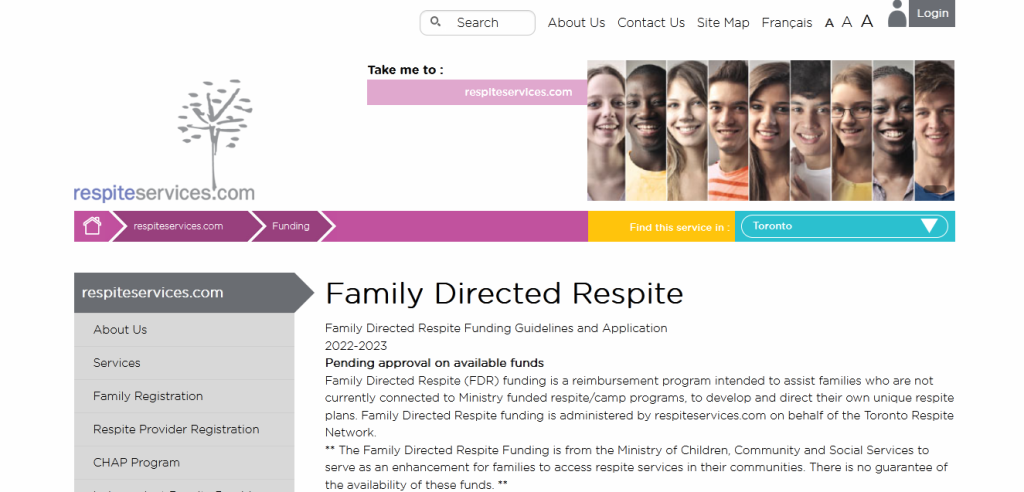
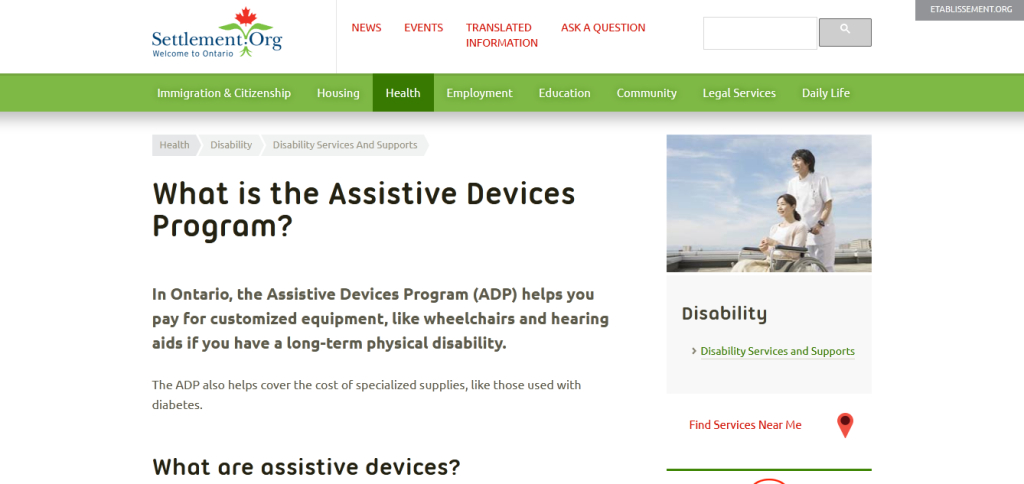
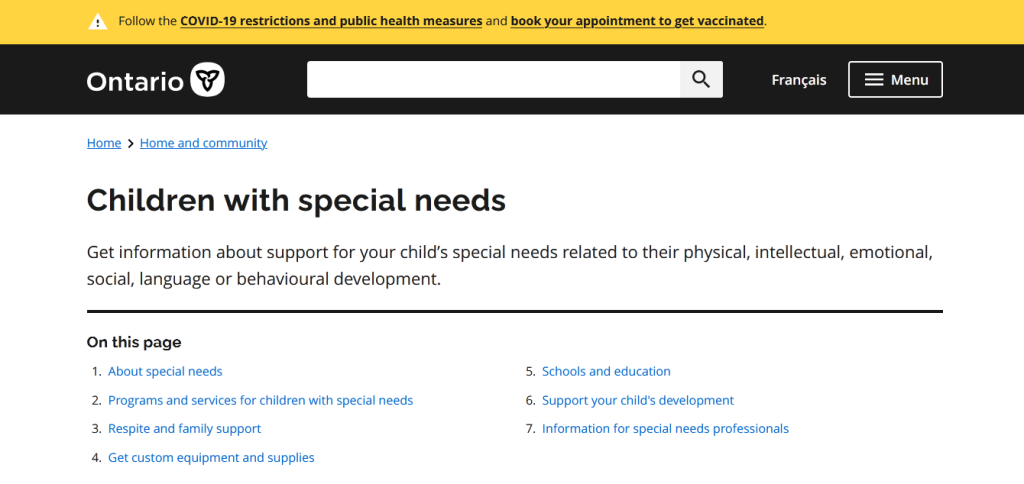

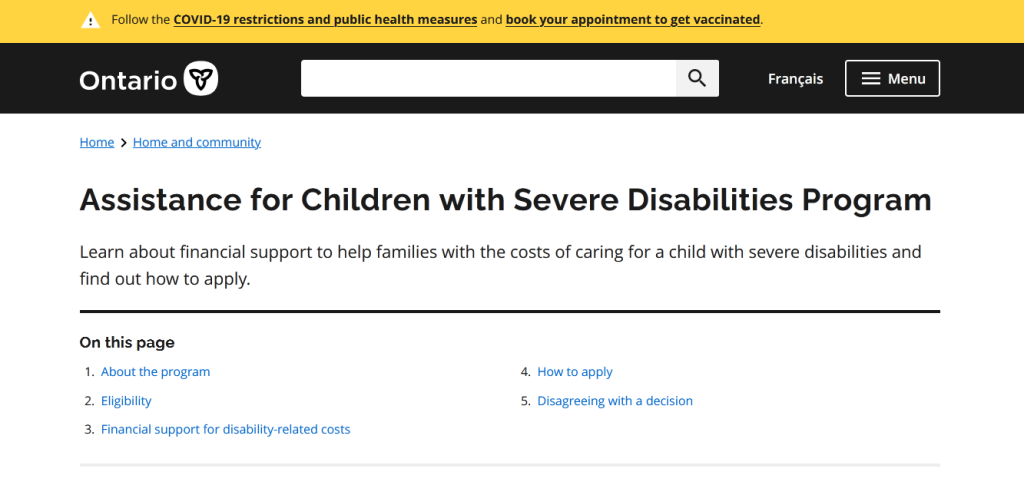
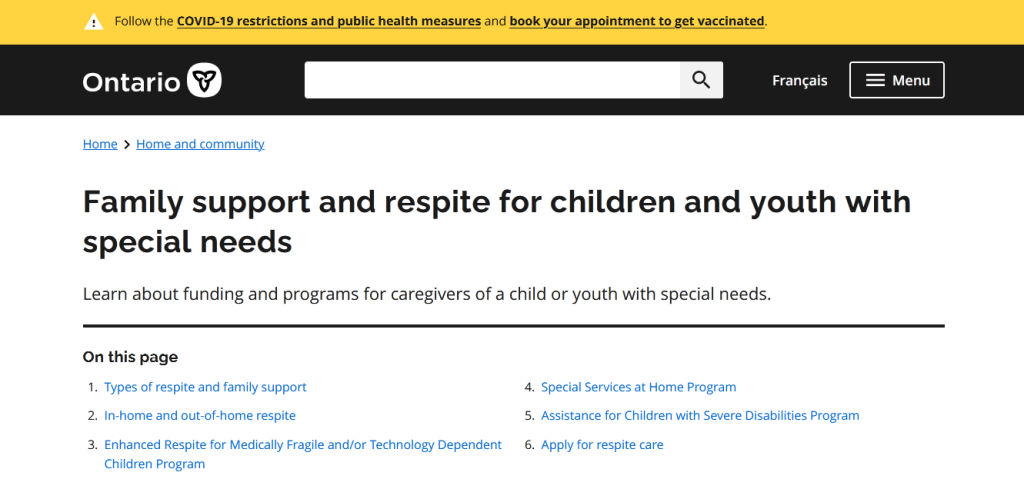


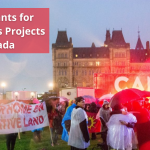



Leave a Reply